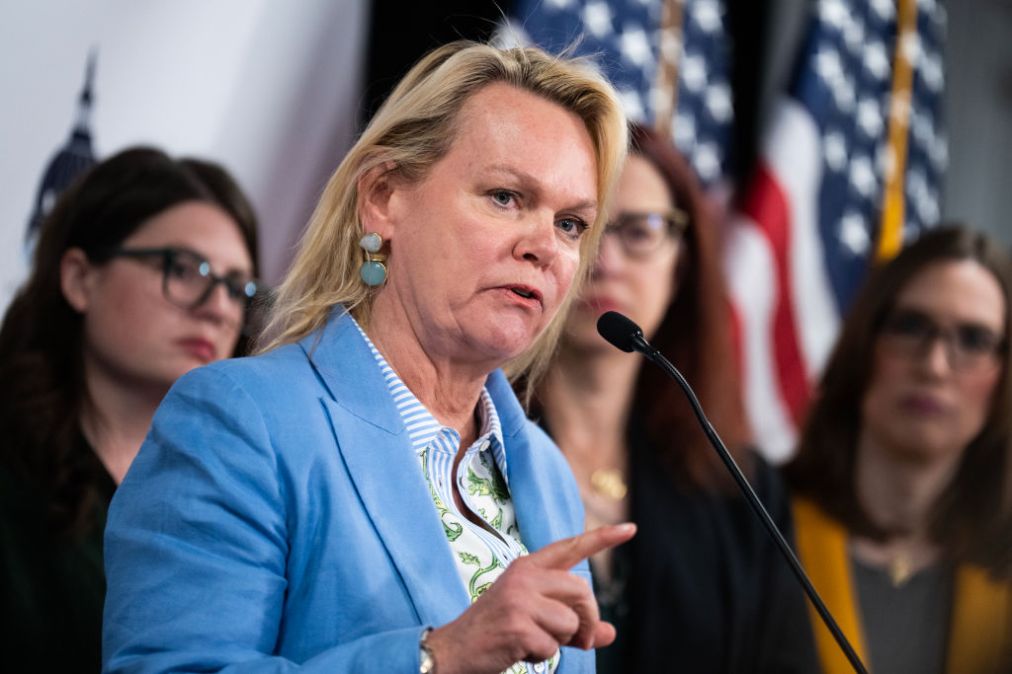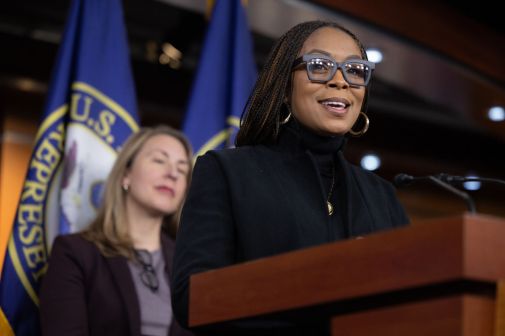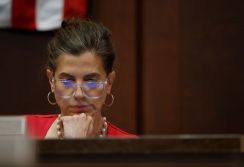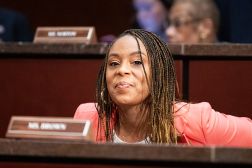House Democrats seek block on DOGE access to Agriculture Department data

A group of House Democrats have introduced legislation to bar DOGE from accessing U.S. Department of Agriculture databases containing farmers’ financial information, a move one of the lawmakers behind the bill said is aimed at restoring “trust” in agencies’ ability to protect Americans’ data.
The Protecting Agricultural Borrower Information Act from Reps. April McClain Delaney of Maryland, Jim Costa of California and John Larson of Connecticut follows NPR reporting in July that found that a DOGE representative had been granted high-level access to USDA’s National Payment Service, giving that individual the ability to view sensitive personal information, alter data entries and even cancel loans to farmers and ranchers.
McClain Delaney, a House Agriculture Committee member, and a dozen of her Democratic colleagues sent a letter to USDA last month, seeking answers on “DOGE’s interference” at the Farm Service Agency and its database for loans and payments.
In a response letter obtained by FedScoop that was sent to the lawmakers last week, FSA Administrator William L. Beam said that continuous monitoring and login access have been implemented across all USDA systems, and “all efficiency employees” have undergone the proper background and security checks.
“All personnel with access to USDA systems are Department employees, meaning no external entities have access to USDA employee information or any personal or proprietary information,” Beam wrote. “Leadership and employees strictly follow the Federal Information Security Modernization Act and the National Institute of Standards and Technology guidelines.”
In an interview with FedScoop on Wednesday, McClain Delaney called USDA Secretary Brooke Rollins a “very informed and very accessible” agency head — but Beam’s letter left her with more questions than answers about the backgrounds of the so-called efficiency employees.
“Yes, there was this whole DOGE operation under Elon Musk. But it seems like some of these people that were originally in the Department of Government Efficiency have now been hired full time within individual agencies, and they’re called efficiency employees,” McClain Delaney said.
Despite the letter’s assurances about these workers’ security clearances, McClain Delaney said it remains unclear “what information are they mining and what are they using it for?”
“Because efficiency and effectiveness is about how a government agency is run, how its employees do their job,” she added. “It’s not about taking your or my information or farmers’ information and then mining it and putting it into AI and God knows what is being done with it.”
The Maryland Democrat said her constituents have raised concerns about the security and privacy of their proprietary financial or personal information housed in USDA, Social Security Administration or IRS databases, and the possibility that that data could be given to third-party contractors.
The worries are especially pronounced for U.S. producers, 90% of whom rely on USDA loans, disaster relief or other FSA support, McClain Delaney said.
“So this is not an inconsequential number of people who are giving their information,” she said. “Who knows whether it be Elon Musk … or if it’s a third-party platform, or if it’s just being fed into an AI system. I think it’s an inappropriate and actually deeply concerning invasion of privacy.”
McClain Delaney, a former deputy assistant secretary of communications at the National Telecommunications and Information Administration, said she and the bill’s co-sponsors — Costa, Larson and Maryland Democrats Sarah Elfreth and Johnny Olszewski — are now looking for Republican colleagues to join them in backing the legislation. She’s “hopeful” that she’ll be able to find “one or two who maybe [are] not seeking reelection,” noting that some of her colleagues across the aisle “kind of privately agree” with the bill’s intent.
Supporting the bill, McClain Delaney said, would go a long way toward restoring trust in government and making sure agencies don’t “break.”
“We don’t want to break our country, break up our agencies, break up the employees that have expertise and drain the expertise and research experts from our country,” she said. “I would lean into the trust and faith that our country needs to have in its agencies and its institutions.”






